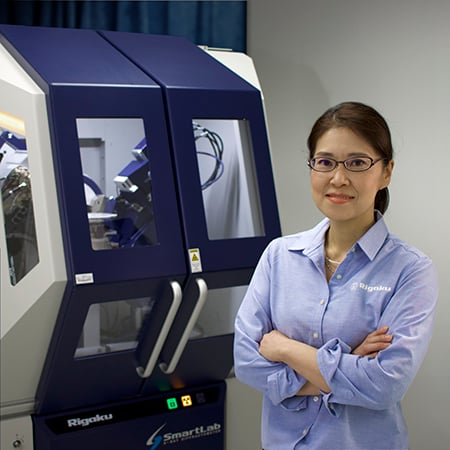Application Note BATT1034
Introduction
In fuel cells, it is known that the average particle size of the Pt catalyst used in the fuel electrode, which is a component material, affects the battery life. Such particle size variation can be evaluated using XRD and SAXS. In this study, the crystallite size of Pt nanoparticles was evaluated by in-situ XRD measurements in a hydrogen gas atmosphere (room temperature) using a corrosion-resistant infrared heated sample high temperature attachment. Small-angle X-ray scattering (SAXS) measurements were also performed before and after the introduction of hydrogen gas to investigate the average particle size and size distribution of Pt nanoparticles.
Particle size and structure analysis
- Analysis: Fuel cell
- Use: Optimizing electrochemical performance
- Analyzed materials: Pt as catalyst
- Analysis method: Crystallite size analysis, grain size analysis
 Figure 1: XRD pattern with hydrogen gas introduction and crystallite size change of Pt nanoparticles
Figure 1: XRD pattern with hydrogen gas introduction and crystallite size change of Pt nanoparticles
 Figure 2: SAXS patterns before and after introduction of hydrogen gas and particle size distribution analysis of Pt nanoparticles
Figure 2: SAXS patterns before and after introduction of hydrogen gas and particle size distribution analysis of Pt nanoparticles
Conclusion
The introduction of hydrogen gas resulted in a sharp change in the diffraction peak shape of the XRD pattern, confirming an increase in the crystallite size of the Pt nanoparticles. The change in the slope of the SAXS profile also suggested a change in particle size. Thus, the ability to evaluate crystallite size and grain size under different environments is a useful method for elucidating the mechanism of structural changes in materials.

